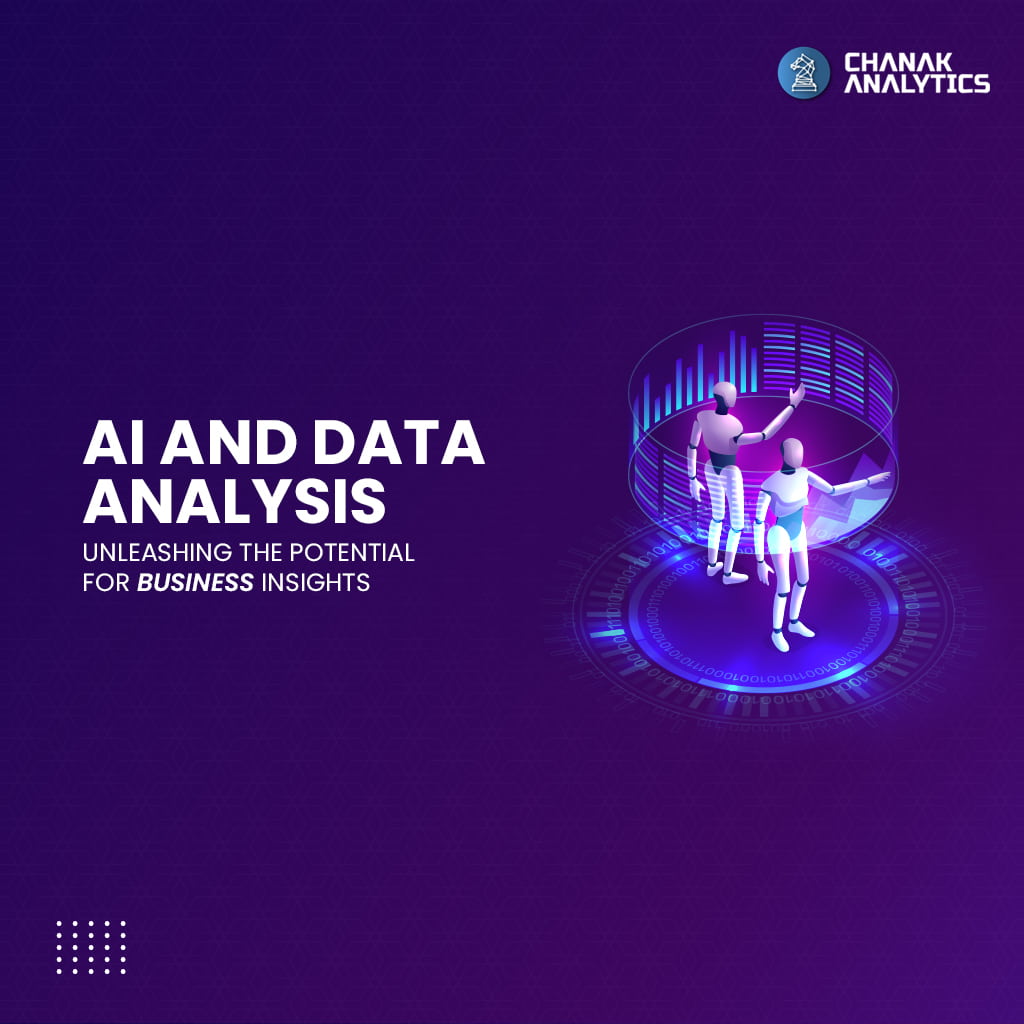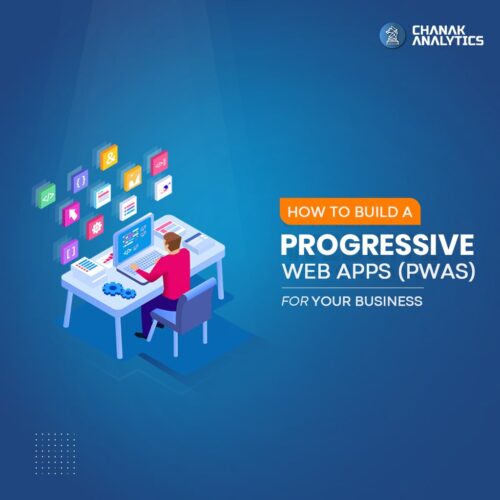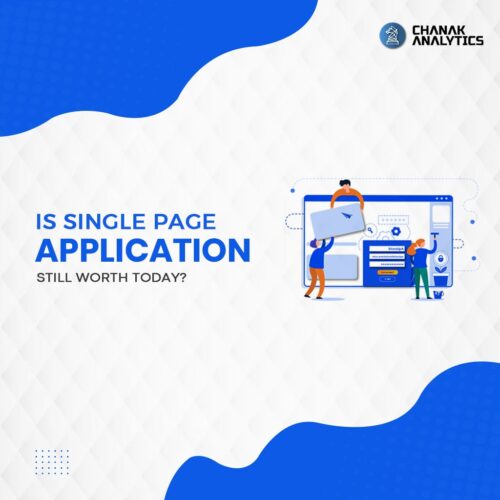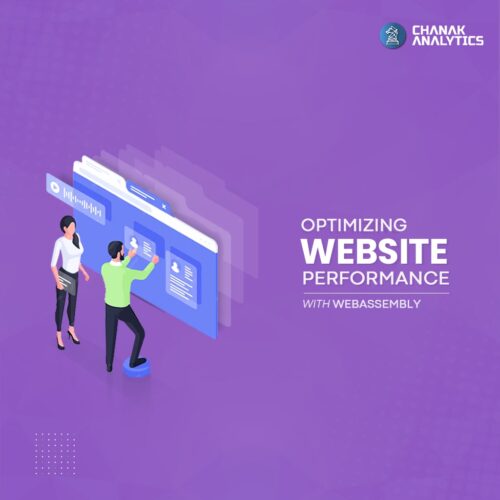AI and Data Analysis: Unleashing the Potential for Business Insights


AI and Data Analysis are like super detectives in businesses. They form teams to untangle patterns and mysteries from mountains of data. AI is the wise sidekick that learns and makes decisions, while Data Analysis mines through heavy piles of information, uncovering insights. They are the power couple that assists organisations in making informed decisions. They introduce some magic to the business community by predicting customer behaviour and improving operations. Let us unveil their secrets, how they collaborate, and how you may transform your firm into an informed decision-making machine!
Why Data Analysis is Your Business’s Secret Weapon for Smarter Moves and Bigger Wins!
- Decision Making: Data analysis is used to guide business decisions. This is similar to possessing a magic mirror that can identify patterns and trends to help guide wise decisions.
- Growth and Innovation: Data understanding enables companies to identify areas for growth and innovation. It is the driving force of progress.
- Understanding Customers: Data analysis helps to reveal information about the customer base – their interests, habits, and needs. This is golden in product and service customisation.
- Cost Efficiency: Through data analysis, companies can find opportunities to reduce costs and make their operations more efficient. It is equivalent to locating leaks on a boat and closing them off.
- Strategic Planning: Through data analysis, realistic goals can be set and workable strategies may also be developed. It’s the ultimate blueprint for success!
Simply put, data analysis isn’t merely numbers on a screen; rather, it is the GPS guiding businesses to victory in an age of constant change. AI and data analysis are the secret ingredients for opening up endless opportunities and achieving that edge.
How Does AI Enhance Data Analysis?
AI revolutionises data analysis in multiple ways, elevating its capabilities and impact on business insights.
- Speed and Efficiency: AI algorithms process massive amounts of data in a flash, conducting analysis that is far faster than what people can do. It speeds up decision-making and increases productivity.
- Pattern Recognition: AI finds intricate patterns in the data that humans might not be able to see. This capability reveals associations, patterns, and anomalies that are essential for informed strategic decisions.
- Predictive Analytics: With machine learning models, AI determines future trends based on past information. It allows businesses to prepare for the next movement and consumer behaviour.
- Personalisation: With data based on individual preferences and behaviour, AI customises recommendations and services. It improves customer experiences as well as loyalty rates!
- Risk Management: Based on analysing large datasets, AI measures risks to fraud detection, cybersecurity, and proactive risk avoidance strategies.
However, the integration of artificial intelligence into data analysis is a lot more than just automation; it is about amplifying human capabilities. It allows for greater insight and drives businesses towards smarter decisions.
AI Magic Across Industries: Unveiling Real-World Wonders!
In all sectors, AI and data analysis are changing the landscape by transforming how businesses work as well as what decisions they make! Here’s a peek at their incredible applications:

• Healthcare
- Diagnosis Precision: AI uses medical images to make more precise judgements.
- Personalised Treatment: Data analysis also allows for customised treatment plans based on patient data.
- Drug Discovery: This speeds up drug development by filtering through large databases.
• Finance
- Risk Assessment: AI forecasts market trends and monitors the magnitude of financial risks on a real-time basis.
- Fraud Detection: Recognises abnormalities in transactions to avoid illegal activities.
- Customer Service: AI-based chatbots process customer queries quite effectively.
• Retail
- Customer Behaviour Analysis: AI helps to determine buying patterns to improve inventory.
- Recommendation Systems: According to the analysis of the data, personalised products are recommended to be offered to customers.
- Supply Chain Optimisation: Predictive analytics can streamline inventory management very quickly!
• Manufacturing
- Predictive Maintenance: AI predicts equipment failures and minimises downtime.
- Quality Control: Data Analysis ensures the quality of products.
- Process Optimisation: It enhances efficiency by pinpointing the problematic areas in operations.
• Marketing
- Targeted Advertising: AI analyses consumer behaviour to target ads accurately.
- Content Personalisation: Individual preferences are taken into account based on content tailoring.
- Campaign Optimisation: Marketing strategies are optimised for increased ROI through data analysis.
Navigating AI: Ethical Dilemmas & Real Challenges
Bias in AI and data analytics pose a significant ethical concern. Machine learning models can accidentally reinforce biases observed in training data. That often results in discriminatory output.
• Challenges
- Complexity of Data: Processing and interpreting heaps of heterogeneous data is problematic.
- Lack of Quality Data: Getting data that is clean and reliable for analysis continues to be a challenge in coming up with the correct insights.
• Ethical Considerations
- Privacy Concerns: The security of personal information used in analysis raises ethical concerns around consent and data protection.
- Bias in Algorithms: Biases propagated by algorithms often affect the process of decision-making and reinforce inequalities.
- Transparency and Accountability: Developing transparent processes for AI decision-making prevents unintended consequences or hidden biases.
The capability of drawing business insights using artificial intelligence and data analytics is broad. However, overcoming these challenges also requires proper data governance, legal frameworks, and ongoing risk management.
Your Ultimate Guide to AI and Data Tools!
In the case of AI and data analysis for businesses, the availability of the right tools and software is essential. Here’s what you need to know:
- Analytics Platforms: Tools such as Tableau, Power BI, and Google Analytics provide a user-friendly interface that simplifies the interpretation of data.
- Machine Learning Libraries: Platforms such as TensorFlow and PyTorch allow business organisations to create personalised AI models that suit their specific requirements.
- Cloud-Based Solutions: Services such as AWS, Azure, and Google Cloud Platform offer scalable data storage and analysis infrastructure.
- Data Visualisation Tools: Software such as D3.js and Plotly aids in building attractive representations of complex datasets.
- Predictive Analytics Software: Predictive modelling tools such as RapidMiner and IBM SPSS provide informed decision-making.
7 Crucial Steps to Implementing AI and Data Analysis in Your Business
Businesses can successfully implement AI and data analysis by following these crucial steps:
• Understanding Business Needs
- Identify areas needing improvement.
- Identify the locations where data insights can play a role.
• Data Collection and Quality
- Collect the necessary information from different sources.
- Ensure data accuracy and cleanliness.
• Choosing the Right Tools and AI Solutions
- Choose AI tools that meet business needs.
- Consider scalability and integration capabilities.
• Training and Skill Development
- Train employees in the use of data and AI applications.
- Promote a data-driven culture in teams.
• Pilot Testing and Iteration
- First, implement small-scale trials before full implementation.
- Adjust and improve strategies according to the outcome.
• Compliance and Ethical Considerations
- It is important to follow data privacy and ethical standards.
- Ensure compliance with government regulations.
• Continuous Monitoring and Improvement
- Make sure to monitor AI performance and data output regularly.
- Develop evolving strategies using ongoing insights for sustained development.
• Protecting Your Data in AI-Driven Analysis
In the modern climate of businesses, data privacy in AI-based analysis is very important! It is very important to ensure trust and security as part of your operations.
- Data Encryption: Encrypt your information for its security from any unauthorised access thereby.
- Compliance Standards: Follow the laws of Indian data protection such as the Personal Data Protection Bill, following legal requirements.
- Access Control: Limit access to data by authorised persons only so that the risk of breaches is minimal.
- Anonymization Techniques: Develop techniques to anonymize personal information, while protecting individuals’ privacy during data analysis.
- Regular Audits: Carry out routine audits and reviews to ensure measures of data security are current and effective.
- Employee Training: Train your team on data privacy standards and build a culture of consciousness and responsibility.
Top Future Trends in AI and Data Analysis

These trends point to a promising future full of potential with readily available, predictable, and adaptable analytical tools. It propels organisations towards greater profitability.
• Descriptive Data Analytics
Wait to see an upsurge in tools that are aimed at helping businesses analyse what happened in the past. Try reports, dashboards and visuals that turn complicated data into easy-to-understand information.
• Basic Statistical Analysis
There will be tools for statistical analysis that are easier to use. It will make it possible to derive sensible conclusions from data without advanced knowledge!
• Personalised AI Solutions
AI will evolve to provide customised solutions based on unique business requirements and market challenges.
• AI-driven Automation
Expect artificial intelligence or AI-powered automated processes to go up. That will lead to less manual effort and increased efficiency in most business functions!
• Enhanced Decision-Making
The development of AI technology will help decision-makers carry out predictive analysis. It gives insights into what may happen in the future or upcoming challenges.
These trends point towards an exciting future, providing businesses with affordable, tailor-made, and foreseeable tools for data analysis. It will greatly contribute to the success of these companies.
Unlocking Business Success through AI and Data Magic
Businesses that use AI and data analytics open a vault that holds a wealth of valuable knowledge. These tools are not just sophisticated tech; they’re game-changers! They detect patterns, foreshadow trends, and identify hidden opportunities. The power is in the ability to tell a story about what your data means. It is like having a crystal ball for business decisions. With AI as the brain and data as the pulse, success isn’t a gamble; it’s a calculated leap. It is all about understanding your customers better, simplifying things, and keeping one step ahead of your competitors. The future of the business world is not about adapting; it is about prospering, and AI integration with data mining leads to the golden road.
Join the community
Join our 400,000+ person community and contribute to a more private and decentralized internet. Start for free.


